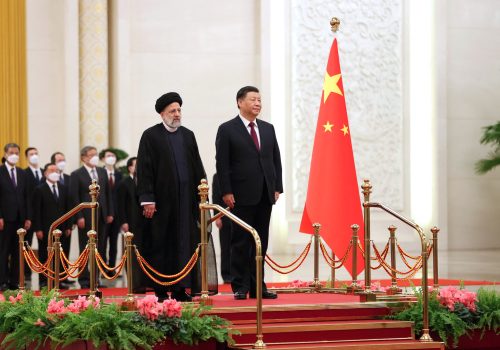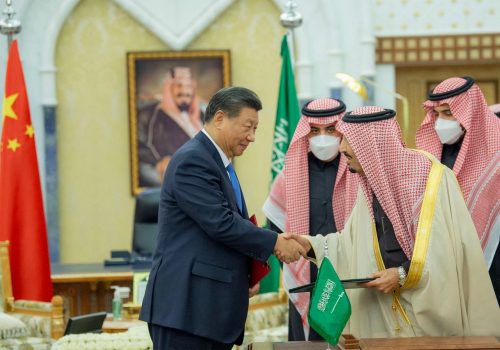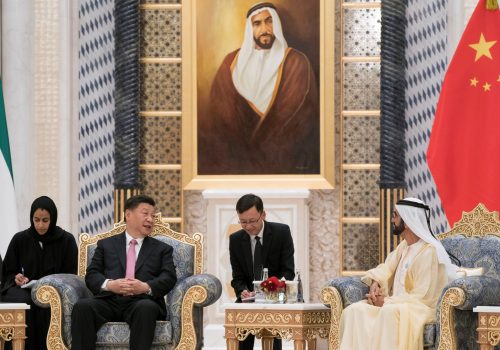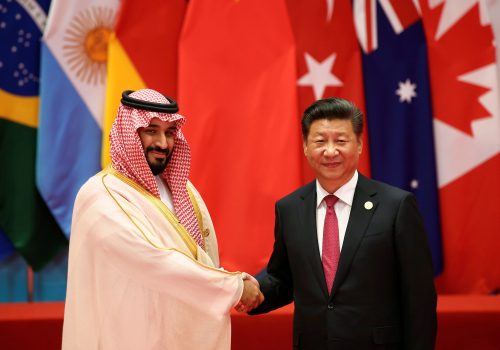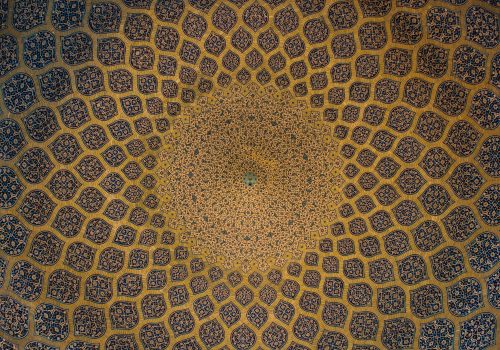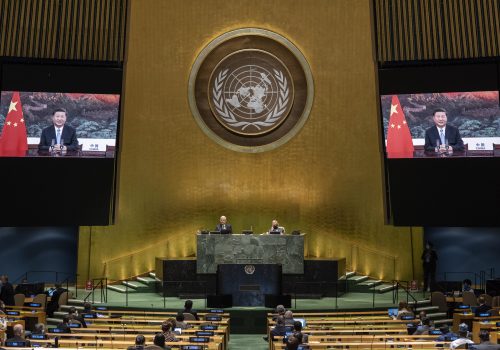The Middle East in the US-India-China Strategic Triangle
SUBSCRIBE TO THE CHINA-MENA PODCAST ON THE APP OF YOUR CHOICE
Key takeaways
- An overview of India’s interest in the Middle East and the shift toward the Gulf region
- New Delhi’s viewpoint on the India-US-China triangle in the Middle East
- The India – China relationship in the recent decade
- The geopolitical play of Iran, India, Pakistan, and GCC in the Indian Ocean
- The growing partnership between India and the Gulf
- The perspective of geopolitical forces in Asia
Chapters
[00:00] Introduction
[01:25] An overview of India’s interests in the Middle East
[09:11] India’s shift toward the Gulf region
[13:12] The I2U2 group and India’s approach to the Middle East
[15:34] New Delhi’s perspective on the India-US-China triangle in the Middle East
[21:04] The India-China relationship today
[26:00] An assessment of the China-Iran relationship
[28:53] Maritime security in the Indian Ocean
[31:32] Geopolitics of Iran, India, Pakistan, and the GCC
[34:52] India’s growing partnership with the Gulf
[38:01] Integrating different cultures and people in the Middle East
[40:20] Balancing geopolitical forces in Asia
[42:27] Conclusion
In this episode
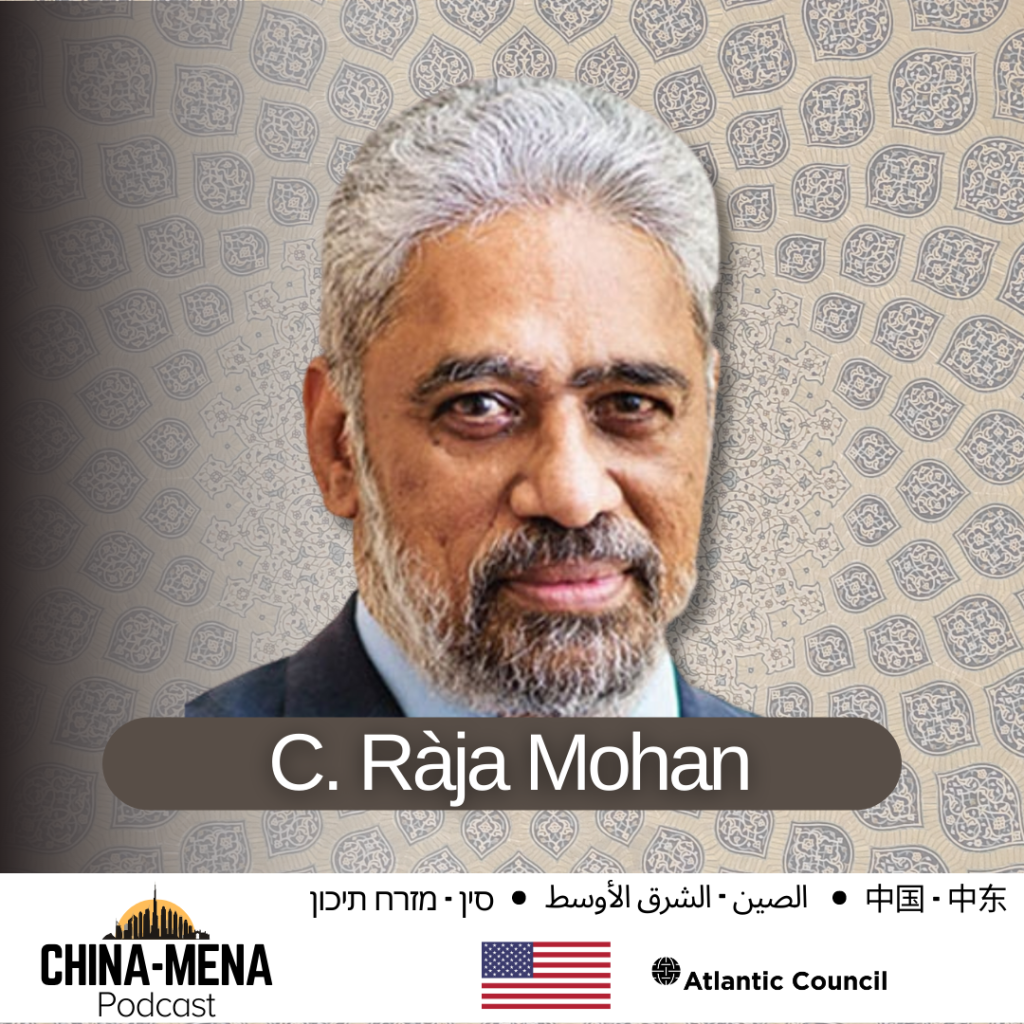
C. Raja Mohan
Senior Fellow
Asia Society Policy Institute in Delhi
C. Raja Mohan is a Senior Fellow with the Asia Society Policy Institute in Delhi — a division of the Asia Society India Centre, Mumbai. He is a Visiting Research Professor at the Institute of South Asian Studies (ISAS), National University of Singapore, and was previously the Director of ISAS. Mohan was the founding director of Carnegie India in Delhi, the sixth international center of Carnegie Endowment for Peace. He was associated with several Indian think tanks, including the Institute of Defense Studies and Analyses, the Observer Research Foundation, and the Center for Policy Research in New Delhi. Mohan was a Professor of South Asian Studies at the Jawaharlal Nehru University, New Delhi, and the Rajaratnam School of International Studies, Singapore. He served on India’s National Security Advisory Board. He was the Henry A. Kissinger Chair in Foreign Policy and International Relations at the Kluge Center, US Library of Congress, Washington DC, during 2009-10. He convened the India chapter of Pugwash Conferences on Science and World Affairs, during 1995-2005. Mohan has published widely on India’s foreign and security policies, Asian geopolitics, and the global governance of advanced technologies. In his most recent, Mohan co-authored the Adelphi Book, The New Asian Geopolitics: Military Power and Regional Order published by the International Institute of Strategic Studies, London in 2021. He is a columnist for Foreign Policy and the Indian Express.
The United States and China are frequently brought up when discussing great powers in the Middle East; however, India also plays a role in the geopolitical dynamics within the region. With its long-standing linkages in economics, culture, and religion, India has long had a significant presence in the area. But as New Delhi has been interacting on political, diplomatic, and security fronts lately, this has taken a more strategic tone.
In this episode, we are joined by C. Raja Mohan, a Senior Fellow with the Asia Society Policy Institute in Delhi. Mohan shares with us his knowledge about India’s role in the Middle East’s geopolitics and New Delhi’s perspective on the influence of the US-China tug-of-war within the region. He will also discuss India’s relations with some regional states and provide insights about maritime security in the Indian Ocean and the growing influence of mixed cultures in the Gulf.
Hosted by
We’d rather have the Americans sit on our hands for good than the Chinese
About the China-MENA podcast
The China-MENA podcast features conversations with academics, think-tankers, and regional specialists on Chinese Influence in the Middle East and informs US and MENA audiences in the policy and business communities about the nature of China’s outreach to the region.
At a time when China’s global footprint is getting deeper and deeper, it has never been more important to understand its foreign policy and the Middle East is one of the world’s most consequential regions: home to major religions, diverse cultural and social heritage, central to global energy markets, and of course, geopolitics, linking people and markets in Asia, Africa and Europe. This show will help you understand what China is doing in the region, and how the region is engaging with China as an increasingly important external power.
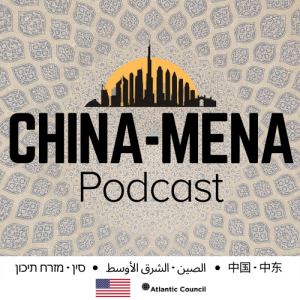
Podcast series
Listen to the latest episode of the China-MENA podcast, featuring conversations with academics, government leaders, and the policy community on China’s role in the Middle East.
Recommended reading
This podcast was funded in part by a grant from the United States Department of State. The opinions, findings, and conclusions stated herein are those of the author and do not necessarily reflect those of the United States Department of State.
Further reading
Wed, Aug 17, 2022
Managing US-China Competition: The View from Singapore
China-MENA Podcast By
Ambassador Bilahari Kausikan discusses the influence of the US-China Competition in the Southeast Asia region and much more!
Tue, Feb 15, 2022
Sino-Iranian relations
China-MENA Podcast By
Professor Anoushrivan Ehteshami joins the China-MENA podcast to discuss China-Iran relations and the state of the bilateral relationship.
Tue, Jan 24, 2023
China’s Vision for a New World Order
China-MENA Podcast By
Nadege Rolland joins us to discuss China's support and dissatisfaction with the existing global order and whether the country will continue to support or try to change it via Chinese-led initiatives.
Image: Saudi Arabia's Crown Prince Mohammed bin Salman and India's Prime Minister Narendra Modi meet at Hyderabad House in New Delhi, India, February 20, 2019. REUTERS/Adnan Abidi








